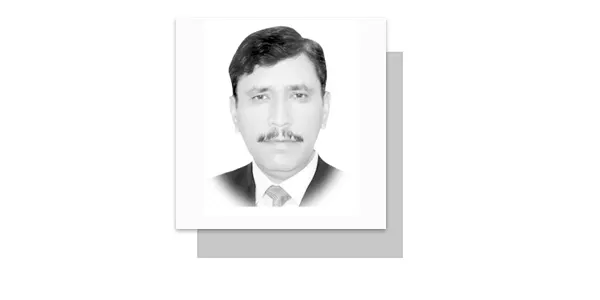A decade ago, a profound report commissioned by the mental health charity, Horizon, delved into the psychological repercussions of the Afghan war. Dr Khalid Mufti, the author of this report, shared his concerns during a detailed discussion, particularly focusing on the impact of war on children in refugee camps in Pakistan and Afghanistan. He expressed apprehension about the questions that might plague the minds of young, war-affected children. Dr. Mufti’s observations extended to the plight of families grappling with the aftermath of war, highlighting the pressing need for attention to mental health issues. Half a decade later, a discernible uptick emerged in the influx of middle-aged women seeking assistance at Ibadat Hospital, the mental health facility spearheaded by Dr. Khalid Mufti. This surge painted a vivid picture of the profound societal impact of the Afghan war and subsequent conflicts. Among this demographic were numerous individuals grappling with the grim aftermath of their spouses succumbing to the clutches of drug addiction. Simultaneously, these women found themselves ensnared in the complex web of psychological challenges, a web intricately woven with anxieties about the well-being and future prospects of their children. This poignant observation served as a stark reminder of the enduring consequences of conflict, with the ripple effects penetrating deep into the fabric of familial and mental well-being within the affected community. When recently approached for insights into the prevailing mental health situation against the backdrop of a severe economic downturn, Dr. Khalid Mufti’s responses unveiled a deep and poignant understanding of the pervasive challenges confronting the community.
Dr. Mufti’s reflections shed light on the grim realities faced by individuals amid the harsh economic climate. He astutely pointed out that the looming spectres of inflation and unemployment were not merely economic indicators but formidable catalysts sowing the seeds of despair among the populace. Even with earnest efforts to combat the prevailing difficulties, Dr. Mufti observed that the impact remained largely ineffective in stemming the tide of distress. His commentary traced a disheartening trajectory, illustrating the distressing correlation between the escalating rates of suicide and the systemic failure to address the root causes of economic distress. Dr. Mufti’s observations underscored the urgency for a comprehensive and coordinated approach, emphasizing that mental health challenges are intricately interwoven with the broader socio-economic fabric. This synthesis of economic and mental health perspectives highlighted the need for strategic interventions that not only alleviate immediate hardships but also target the underlying factors perpetuating despair within the community. Amidst a scarcity of mental health facilities and adequately trained professionals in the country, the current predicament necessitates a nuanced understanding through a politico-psychological lens.
The prevailing economic downturn, exacerbated by an aristocracy preoccupied with its own interests, obstructs the development of policies that could genuinely benefit the entire population. Achievements in economic improvements often favour specific sections of society, with profits frequently diverted into non-productive sectors or offshore bank accounts, consequently entangling the country in debt. The repercussions are severe—escalating taxes, delayed salary disbursements, and economic hardship materializing in the form of soaring prices for essential commodities. In this bleak economic landscape, industries are shutting down due to expensive energy, exacerbating unemployment. Simultaneously, additional taxes are eroding people’s purchasing power, limiting their access to quality food and contributing to a rise in diseases. The resulting hunger and economic distress, in turn, are fuelling a mental health crisis of significant proportions.Dr. Khalid Mufti offers a ray of hope through a counselling-focused formula, emphasizing the inseparable link between psychological well-being and economic uplift. According to him, addressing mental health hinges significantly on providing comfort and support to the distressed population. Following his formula, political parties could develop manifestos with clear plans for enhancing purchasing power, curbing inflation, and reducing taxes. The government, aligning with Mufti’s approach, could alleviate challenges by lowering interest rates to stimulate small businesses. Creative urban planning would further accommodate and nurture the street economy, forming a comprehensive strategy to uplift both the economic and mental health landscape of the nation.
Dr. Khalid Mufti’s perspective on addressing societal challenges is distinctively pragmatic, as he refrains from merely advocating for wealth redistribution among the affluent class. Instead, his call is for a form of relief that entails active engagement in welfare initiatives and the encouragement of entrepreneurial endeavours. Dr. Mufti envisions a collaborative effort involving not just the government but also financial institutions and the affluent strata of society to resuscitate the economy. His emphasis lies in recognizing that such endeavours are not just altruistic acts but also serve the collective interest, as prosperity amid despair is an antidote to societal depression. Dr. Mufti proposes that the path out of the trap of despair necessitates an expansive approach, wherein the circle of prosperity is widened, fostering an environment where economic well-being becomes a shared aspiration. This viewpoint aligns with a holistic understanding that sustainable change requires a concerted, multi-faceted effort, engaging various stakeholders in the pursuit of not only economic recovery but also the restoration of hope within the broader community.
—The writer is political analyst, based in Islamabad.
Email: riaz.missen@gmail.com
views expressed are writer’s own.










